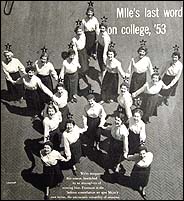 |
| Two-Dozen Avocados Not Pictured (SP top of picture) |
I'd read a couple of the SP biographies before The Bell Jar and to me it seemed like a distillation of the fragments I'd already picked up. It seemed that all that was missing were the footnotes pointing the pseudonyms at the real people. So ignore the Bourgeois backdrop and concentrate on the description of Ether/Sylvia's predicament and the brilliantly-succinct way that a complex state of mind is described in a way that keeps you reading despite the over-whelming sense of ennui about the whole thing. If you are expecting obscure poetic references you will be disappointed - this is basic description born maybe of the detailed descriptions of peeling hotel rooms from the journals, a brilliant mind sharply dissecting both itself and the hypocrisy of others, all the while pointing out without judgement, the hypocrisy of the narrator herself. There is a lot of what she ought to have said but didn't, times where she just shrugged and accepted the terrible behaviour of those around her. You can find a parallel here between the bright and breezy style of the Letters Home and the dark mazes of The Journals. You might not come away from this understanding any more of Plath's mind but you will feel that you have read a great book masquerading as Airport Fiction - A potboiler as Plath herself described it.
I know that there is a second film version of this in development at the moment. I am not hopeful that this will be any better than the 1979 version which resulted in legal actions and apparently managed to filter out any literary merit leaving the pulpiest of pulp-fiction on the screen.

No comments:
Post a Comment